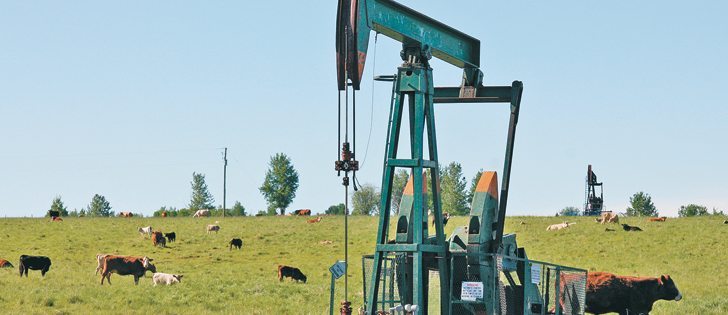A quick search of The Globe and Mail’s website suggests that petroleum is much more important to Canada than agriculture.
Entering the words “oil,” “Canada” and “economy” into the Globe search engine generates 20,042 results, while “agriculture,” “Canada” and “economy” produces 3,134 results.
Amanda Lang, a well-known business journalist, said agriculture and food is more vital to the country and the economy than the oil and gas sector, but few people understand that agri-food is re-sponsible for one in eight jobs in Canada.
Lang told the Canadian Agri-Food Forum in Ottawa in early November that industry leaders should get together and set the record straight.
Read Also

Farming Smarter receives financial boost from Alberta government for potato research
Farming Smarter near Lethbridge got a boost to its research equipment, thanks to the Alberta government’s increase in funding for research associations.
“Have your voice. Know how important you are,” she said.
“I don’t know whether the top forces of this industry get together regularly … (but) organize yourselves.”
Keith Currie, an Ontario Federation of Agriculture vice-president, agreed, saying it’s time for major players in the agriculture and food industry to collaborate on a public awareness campaign.
“We haven’t done a good job of telling our story to the public,” said Currie, who farms north of Toronto.
“We are an industry that’s coast to coast to coast … and we touch everybody’s life everyday…. We have to get out in front of this.”
Currie said agri-food leaders are taking the first steps to work together on public awareness and trust.
Agriculture and social licence was one of the points of discussion at this summer’s provincial agriculture ministers meeting in Prince Edward Island, and Currie said those conversations led to a recent meeting in Winnipeg.
“I know there was a meeting a couple weeks ago…. There were deputy ministers … and some commodity leaders and the CFA (Canadian Federation of Agriculture) was involved, starting down that road of formulating a process of how we can organize,” he said.
“I think the aim, right now, is hopefully have some sort of roundtable discussion (on social licence) next summer … to gather everybody and put our heads together.”
Currie said a co-ordinate communication effort is needed to increase public awareness.
“If you do it collectively, the message is the same,” he said.
“There’s nothing worse than throwing a confusing message at the public.”
Canadian Federation of Agriculture president Ron Bonnett said agricultural leader, from government and the grain sector are developing a working paper on social license, which should be completed in a few weeks. The paper will provide direction on how Canada’s agri-food industry can unite and address the issue collectively.
“Get the whole agriculture sector to come together,” Bonnett said.
“There have been (individual) attempts at this in the past, (but) commodity by commodity.”
Currie said coming together is complex in a large country such as Canada, which produces more than 200 agricultural commodities.
However, a co-ordinated effort and a collective investment are now required to maintain public confidence in agriculture.
“Lots of people have best intentions on how to educate the public, but they may not have the best idea on how to go about doing it,” Currie said.
“That’s where the collection of all the partners in agri-food industry need to be together, so we understand how we need to deliver the message.”


















